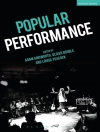“The ‘Slumdog’ Phenomenon” addresses multiple issues related to “Slumdog Millionaire” and, in the process, provides new ways of looking at this controversial film. Each of the book’s four sections considers a particular aspect of the film: its relation to the nation, to the slum, to Bollywood and its reception. The volume provides a critical overview of the key issues and debates stemming from the film, and allows readers to reexamine them in light of the anthology’s multiple perspectives.
Table of Content
Notes on Contributors; List of Figures; Acknowledgments; Introduction: The “Slumdog” Phenomenon – Ajay Gehlawat; “SLUMDOG” AND THE NATION: Chapter 1: National Allegory – Brian Larkin; Chapter 2: “Slumdog Millionaire” and the Emerging Centrality of India – Sharmila Mukherjee; Chapter 3: Slumlord Aesthetics and the Question of Indian Poverty – Nandini Chandra; Chapter 4: Watching Time: “Slumdog Millionaire” and National Ontology – Lakshmi Padmanabhan; “SLUMDOG” AND THE SLUM: Chapter 5: “Slumdog Millionaire” and Epistemologies of the City – Ulka Anjaria and Jonathan Shapiro Anjaria; Chapter 6: A Million Dollar Exit from the Slum-World: “Slumdog Millionaire”’s Troubling Formula for Social Justice – Mitu Sengupta; Chapter 7: Slumdogs and Millionaires: Facts and Fictions of Indian (Under)development – Snehal Shingavi; “SLUMDOG” AND BOLLYWOOD: Chapter 8: Slumdogs, Coolies and Gangsters: Amitabh Bachchan and the Legacy of 1970s Bollywood in “Slumdog Millionaire” – Claus Tieber; Chapter 9: “It is Written” (in Invisible Ink): “Slumdog Millionaire”’s SFX and the Realist Overwriting of Bollywood Spectacle – Samhita Sunya; “SLUMDOG”’S RECEPTIONS: Chapter 10: Why the Sun Shines on “Slumdog” – Anandam Kavoori; Chapter 11: “Slumdog” Celebrities – Priya Jaikumar; Chapter 12: “Slumdog Millionaire” and the New Middlebrow – Robert Koehler; Chapter 13: Slumdog Comprador: Coming to Terms with the “Slumdog” Phenomenon – Ajay Gehlawat; Chapter 14: The Life-Cycle of “Slumdog Millionaire” on the Web – Thomas Elsaesser and Warren Buckland; Conclusion: Jai Who? – Ajay Gehlawat; Select Bibliography; Films Cited; Index
About the author
Ajay Gehlawat is assistant professor of theatre and film in the Hutchins School of Liberal Studies at Sonoma State University.












